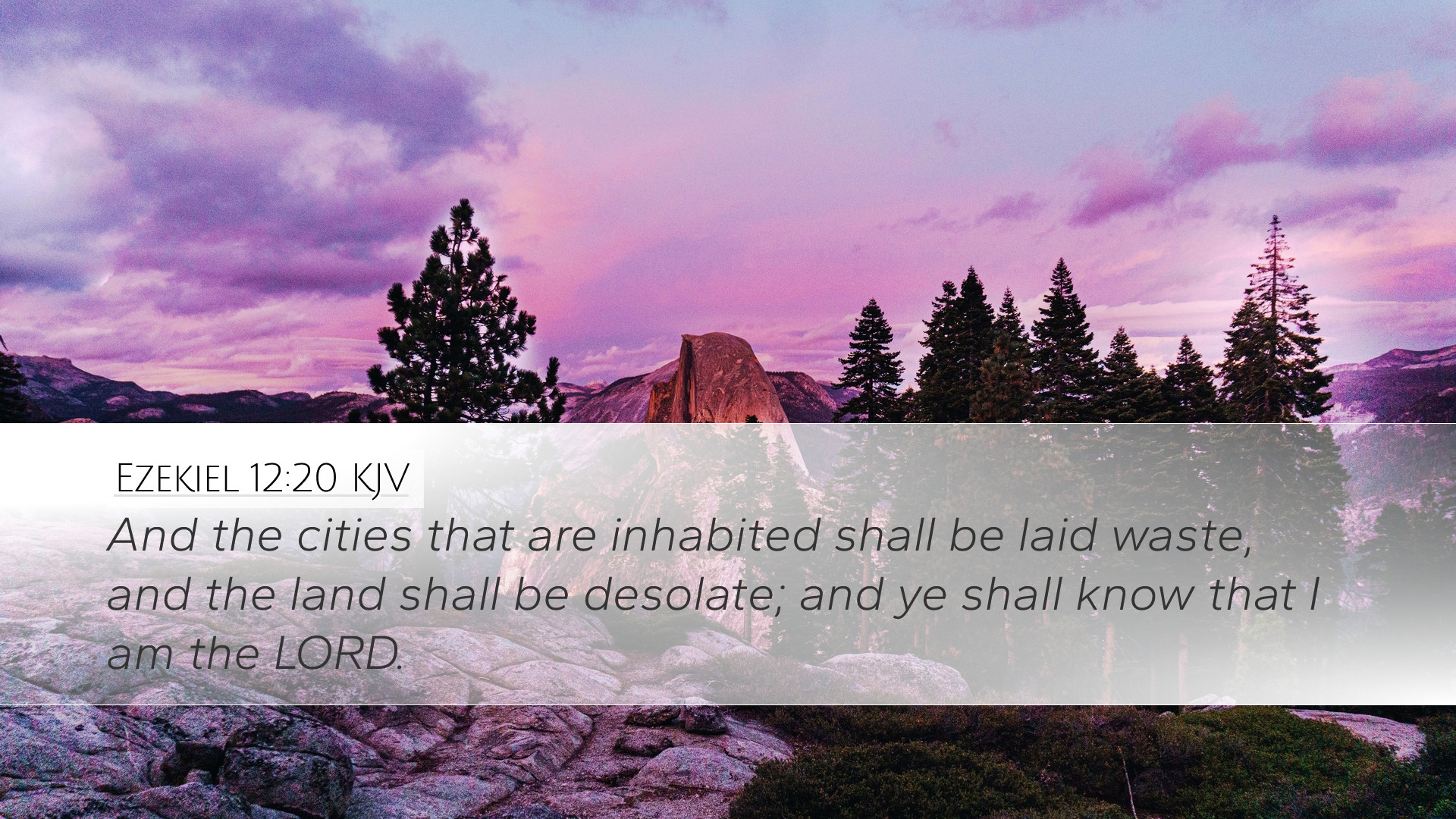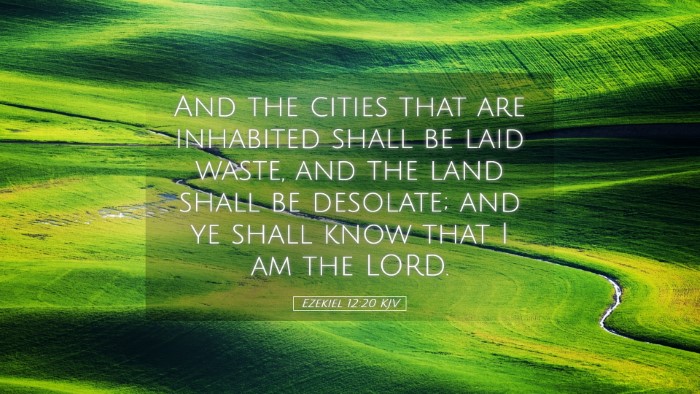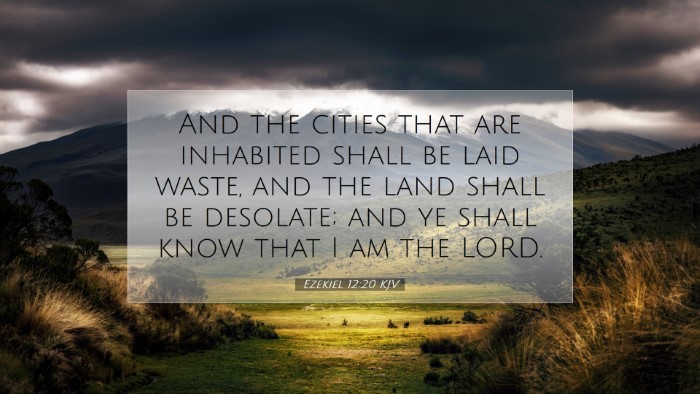Ezekiel 12:20 Commentary
Verse Reference: Ezekiel 12:20 - "And the cities that are inhabited shall be laid waste, and the land shall be desolate; and ye shall know that I am the LORD."
Introduction
The book of Ezekiel is often characterized by its profound symbolism, vivid imagery, and prophetic declarations concerning the fate of Jerusalem and Judah. Ezekiel 12:20 serves as a crucial verse indicating the impending desolation of the cities and land, as well as reinforcing the sovereignty of God. This commentary aims to distill insights from prominent public domain scholars, including Matthew Henry, Albert Barnes, and Adam Clarke.
Contextual Analysis
Ezekiel prophesies during a tumultuous time in Israel’s history, mainly the Babylonian captivity. This verse particularly comes in a section where the prophet is instructed to perform a series of symbolic acts that would reflect Israel's plight and God's judgment. The themes of judgment, desolation, and realization of God’s sovereignty are interspersed throughout this passage.
Commentary Insights
Matthew Henry's Perspective
Matthew Henry emphasizes God’s judgment and the certainty of His word. In his commentary on this verse, he points out that the destruction of cities is not merely physical but holds spiritual connotations as well. Henry asserts that when God removes His protection, desolation follows:
- Divine Judgment: The desolation serves as a direct fulfillment of prophecy, indicating the seriousness of their sins.
- Recognition of the Lord: Henry notes that the ultimate purpose of judgment is for the people to realize that the LORD alone is sovereign, reclaiming their acknowledgment of Him.
Albert Barnes' Analysis
Albert Barnes provides further elucidation on the socio-political ramifications of the prophecy in this verse. His insights can be distilled into key themes:
- Desolation of Cities: Barnes mentions that the 'cities that are inhabited' points to significant urban centers that will descend into ruin. The vivid imagery illustrates that no place of refuge remains.
- The Meaning of Desolation: The reference to land becoming desolate reveals the broader impact on the entire nation and serves as an alert to the causes of their downfall - disobedience to God.
Adam Clarke's Commentary
Adam Clarke brings a theological perspective to the verse, focusing on God’s holiness and justice. His insights stress the balance between Divine judgment and mercy:
- Clear Revelation of God’s Character: Clarke highlights that God’s judgments are always purposeful — they unveil His character and intentions.
- Awakening to Reality: The phrase 'you shall know that I am the LORD' indicates that through judgment, God calls His people to recognize His authority and supremacy. This awakening is an essential aspect of restoration.
Theological Implications
Theological reflections from this verse point to several crucial aspects that are significant for pastors, students, and scholars:
- The Sovereignty of God: The desolation serves as a testament to God’s control over human affairs, reinforcing that nothing occurs outside His divine will.
- Call to Repentance: The promise of desolation functions as a warning which, through understanding its consequences, leads to repentance.
- Future Restoration: The notion that God desires His people to know Him suggests that judgment can lead to redemption, as recognizing God often precedes restoration.
Applications for Today
For contemporary readers, Ezekiel 12:20 has profound implications for understanding God’s dealings with humanity:
- Personal Reflection: It invites individuals to consider their own relationship with God and the areas of life that may have led to spiritual desolation.
- Community Awareness: Congregations must recognize the importance of collective faithfulness to God to avoid judgment and desolation.
- Hope in Sovereignty: Ultimately, believers can find hope in knowing that God’s judgments are always accompanied by His desire for restoration and reconciliation.
Conclusion
In conclusion, Ezekiel 12:20 brings forth themes of divine judgment, recognition of God's sovereignty, and the hope woven through the fabric of desolation. Insights drawn from public domain commentaries illuminate the verse’s depth and richness, offering valuable perspectives for anyone engaged in serious theological reflection. By combining these insights from Matthew Henry, Albert Barnes, and Adam Clarke, we gain a comprehensive understanding of this significant passage and its implications for both ancient Israel and today's believers.


